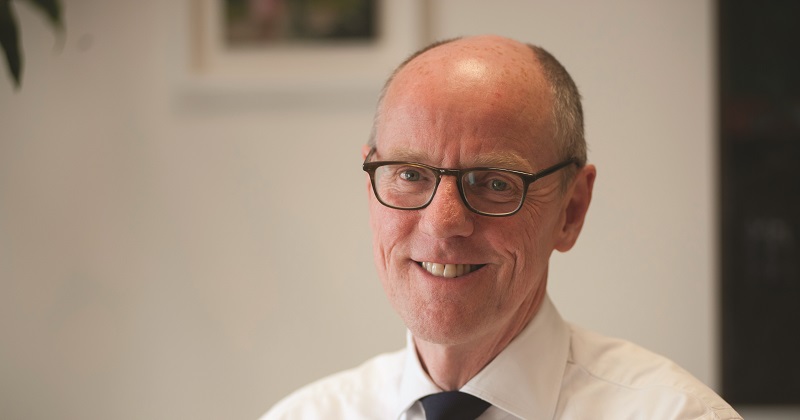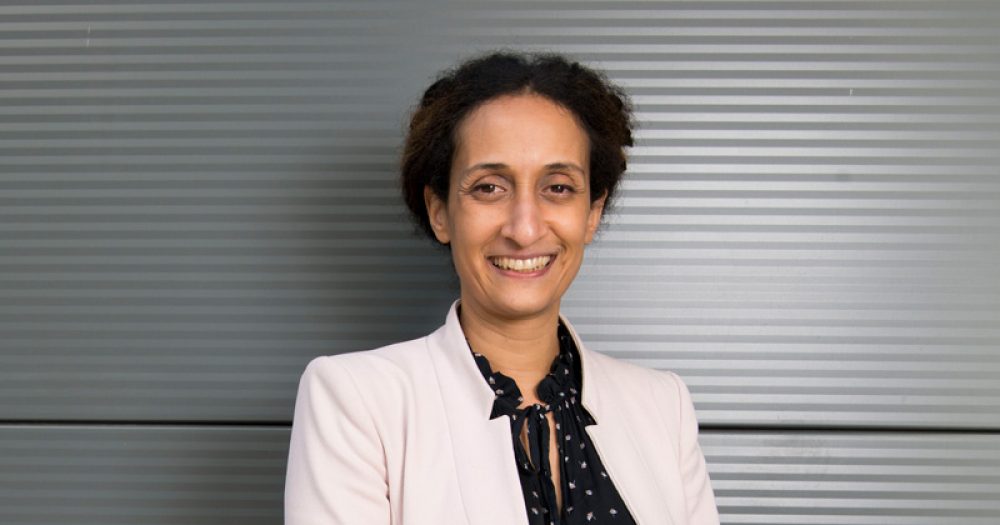An outspoken free school head has insisted she doesn’t blame parents who won’t make children give up their smartphones, after warning in a memo to governors that “too many parents do not take GCSEs seriously”.
Documents from minutes of the Michaela Community School governing board, obtained by Schools Week, show Katharine Birbalsingh warned earlier this year that “too many pupils” refused to work at home and some parents were “unwilling” to take their phones from them.
We are doing everything we can for them, but there comes a point where the child and the parents have to take responsibility for themselves
The school, dubbed “Britain’s strictest”, celebrated an extraordinary first set of GCSE results this summer.
But Birbalsingh, an outspoken critic of smartphones who believes the government should consider banning their use by under-16s, told Schools Week this week that pupils still “could’ve done better”.
In the memo, issued in April, the headteacher warned that parents don’t take away phones “because screens keep their children occupied”.
The school runs compulsory homework club for pupils who don’t complete work at home, but Birbalsingh says staff can only stay until 6pm “and sadly, this isn’t enough”.
“We are doing everything we can for them, but there comes a point where the child and the parents have to take responsibility for themselves.”
But speaking to Schools Week, Birbalsingh said: “I’m not blaming the parents. I’m saying they don’t have the information, they’re not knowledgeable. We need to get them the knowledge.”
Michaela already confiscates any phones seen or heard anywhere on its grounds, but now also offers a “digital drop-off” scheme, where pupils can leave phones, tablets and games controllers in a safe at the school for a period to aid concentration.
Pupils hand in their technology for a day, two weeks, or “right up until they take their exams” Birbalsingh said, adding that the service is now “regularly used”, especially close to exams.
The school now also offers to install the Screentime app – which regulates children’s use of iPhones – on behalf of parents who don’t feel able to do it themselves. Birbalsingh also tries to persuade parents of year 6 and 7 pupils not to buy them smartphones in the first place.
The use of mobile phones by pupils has become an increasingly contentious issue in the schools sector.
Teachers are allowed by law to confiscate mobile phones as long as it is a “reasonable, proportionate” penalty, and providing the school’s policy has been clearly communicated to pupils.
In February, schools minister Nick Gibb said schools should ban mobile phones, though Damian Hinds, until recently the education secretary, said the decision should be left up to head teachers.

In May, more than 45 school and academy trust leaders signed a letter pledging to run “phone-free schools”.
But moves to ban phones have not been without controversy. Earlier this year, South Wigston high school in Leicester was accused of holding pupils’ tech to “ransom” after charging parents £2 for the return of confiscated devices.
More needs to be done nationally to tackle the issue, Birbalsingh believes. She has previously called for a government information campaign to warn of the dangers of smartphone use, and says more drastic action may be needed.
“I’m not saying government should necessarily ban phones for under 16-year-olds, although I think that’s something we should consider.”
Birbalsingh insists too few people understand that smartphones are “extremely dangerous, in particular for the most vulnerable in our society”.
“What too many of the middle classes don’t understand is that if mum and dad aren’t at home because they’re working three jobs, or if mum’s an alcoholic and dad’s in prison, or whatever the situation may be, then the child doesn’t have the support at home to be able to get his homework done,” she said.
“And if he has a phone, he’s likely to be on the phone for eight hours in the evening and won’t go to sleep until two in the morning and then is exhausted and is unable to do his work.
“It can be monitored by some families. Other families will struggle, and that simply isn’t recognised in society.”
In the end, Michaela’s results this year placed it in the top five of all schools nationally for progress, and the proportion of grade 7s at the school was more than double the national average.
But Birbalsingh said: “The fact is that there are families where the children don’t work hard enough at home.
“That was the case then, that is the case now, we are in the inner-city, so we have a challenging intake, but all schools, it won’t just be ours, all schools will struggle on this level where children simply don’t do enough work at home.”








Honestly can’t see anything there she needs to “defend”.
Common sense commenting on what we all know to be true, but most people feel uncomfortable saying out loud. Something Katharine Birbalsingh is never afraid to do!
Reflects wider issues of students not doing work at home and schools and teachers being held to account for the outcomes for students. This leads into poor OFSTED reports and the generic rubbish of schools being accused of having low expectations.
You can only influence students outcome so much, the responsibility for a students’ success is theirs and the students wider family. This is especially more relevant in homes were parental support is lacking. My students who have done well in their engineering BTEC mocks exams are the ones who revised and applied themselves in class and at home.
New GCSE’s require a sustained amount of work to be done at home as schools are hard pushed just to cover the content and get them to practice the relevant skills in lesson time. Hence the explosion in 3 year GCSE where Year 9 is seen as a starter year.
Yes, she is right about phones. I think one day we’ll realise the error of allowing such young students access to social media and the internet in this way, but the damage may be done before that time comes.
She is working so hard to help our children so we have to give full support
And trust them because physical and emotional mobile phones damage our lives no activities no communication
Between siblings or parents my children goes to michaela community school iam very proud of her
Well don and keep up the good work